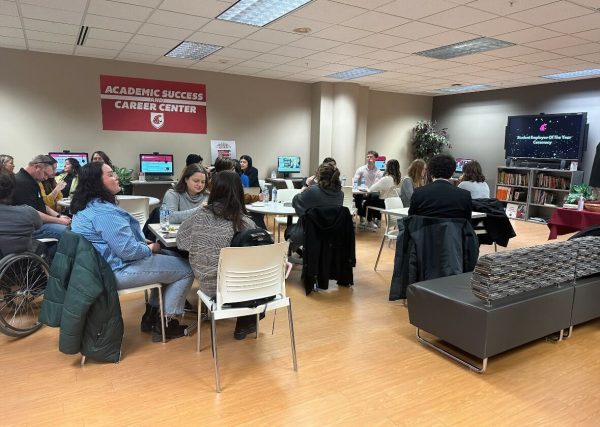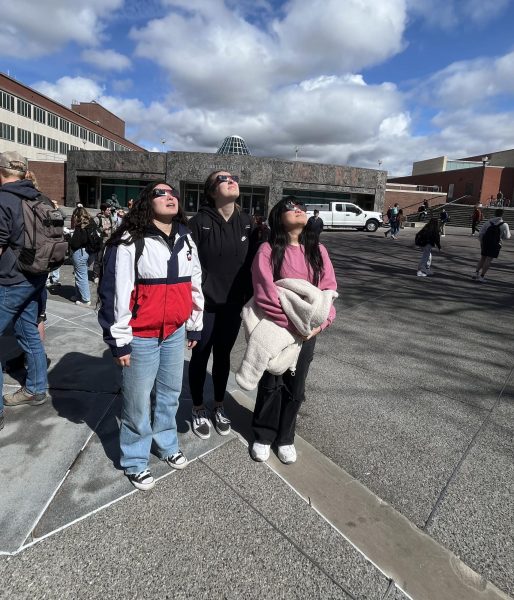ASWSU, Residence Life continue work on termination transparency
May 5, 2014
Residence Life maintains that it is fair to students with its expectation policies and termination process, despite concerns from ASWSU.
After facing concerns brought by the student body about its termination process, Residence Life will not add an appeals process to termination or contract language upon being hired.
“I highly doubt any other student employee at WSU is informed as much about their performance concerns as our staff,” said Edwin Hamada, director of Residence Life.
Last spring students began expressing concerns to ASWSU about termination policies with Residence Life. Later in the fall of 2013 the ASWSU senate passed resolution 43-02 to request more transparent termination policies.
“We had some students voice concerns about some of the termination policies. For example, they would only have 48 hours to vacate the premises,” said Hayley Hohman, ASWSU senator and sponsor of the resolution.
After looking into students testimonies Hohman said she and other senators realized that one of the bigger issues was with the clarity of the policies themselves.
“Most of the problems that arose were because students were confused about the different policies like the termination policies. They are loosely outlined in the expectations,” Hohman said.
ASWSU’s investigation into students’ testimonies fell short because of the level of confidentiality within Residence Life.
“A part of the problems we’ve had with this is that we aren’t able to go over the individual situations because it is of sensitive nature, and so the testimonies we have from students are only hearsay,” Hohman said.
Hohman was declined the reasons why students were terminated from their jobs because Residence Life considers the information confidential, she said.
Residence Life has a formal documentation system called cycles of supervision.
The system has multiple layers of verbal warning, written warning, probation and ultimately termination, Hamada said.
When hired, RAs are asked to sign a form detailing the position as well as expectations.
At the end of the three-page document is a section detailing the means of termination of employment and how the department reserves the right to terminate an employee at will or for cause.
The form is in no way a contract and is simply used at the beginning of a student’s hiring to ensure students know what is expected of them, Hamada said.
RAs are required as students to maintain a minimum of a 2.5 GPA, and most terminations come as a result from not meeting that requirement, Hamada said.
RAs have this document, an operations manual, 1.5 weeks of fall training, two days of training in January, a half day in Spring, a semester long leadership class, weekly staff meetings, monthly in-service, and weekly one-on-ones with direct supervisors, Hamada said.
“I am confident that no other student staff employee has as much invested in their training and supervision than RAs,” Hamada said.
ASWSU is still working on collaborating with Residence Life in order to create clearer policies.
“We’re just working on coordinating between what the exact policies are and what the students are missing in that information,” Hohman said. “We’ll continue working on that hopefully next year.”
Hohman said that ideally the policies will have more transparency.
“Because of the at-will status it’s kind of hard to figure out what you then do with students that have been terminated just because the policy. You could technically say you’re done and you have to leave now,” Hohman said.
Hamada, however, disagreed with using contract language.
“The reason we don’t get into contract is because there is always an exception to a rule,” Hamada said. “The bottom line is that we are trying to do our best with what we have.”
Hamada acknowledged what is at stake for RAs and said termination is not handled lightly.
“It’s a tough job to lose,” Hamada said. “There’s more to lose with an RA job, and that’s why we have to be completely clear with our expectations.”
There is no formal appeals process for termination, Hamada said. He said he believes it would give him too much overriding power.
“It doesn’t make sense to have an appeals process because REDs (residential education directors) know better what’s happening in their building,” Hamada said.
Residence Life just recently conducted an internal survey and is waiting on the results, he said.





















